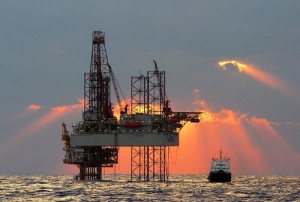Nigeria is the 10th largest oil producer in the world, the third largest in Africa and the most prolific oil producer in Sub-Saharan Africa.
Nigerian oil exports are set to rise to about 2.1 million barrels per day (bpd) in May, trade sources said on Wednesday, citing provisional loading programmes, a level that Reuters data showed to be a nine-month high.
Shipping lists showed Nigeria will load around 65 million barrels of oil on 73 tankers. The May exports are set to be the highest since August 2011, according to Reuters data. Daily exports are up from a planned level of 1.96 million bpd in April.
Nigeria is Africa’s top oil producer and exports have risen in the last two months due to rising production at Total’s giant offshore field “Usan”. Exports for the new grade are rising fast and it will load 5 cargoes or about 150,000 bpd in May compared with 3 cargoes in April, the shipping lists showed.
“It is over 2 million (bpd) thanks to Usan,” said a West African crude trader.
Exports for the benchmark Nigerian export grade Qua Iboe are set to be steady in May at 12 cargoes. Bonny Light volumes are set to fall from eight tankers to five in May.
Nigeria, an OPEC member, produces an average of around 2.5 million barrels per day of oil and light gas liquids and has the world’s seventh largest gas reserves.
Oil and Gas in Nigeria
Nigeria has a population of over 110 million people and an abundance of natural resources, especially hydrocarbons. It is the 10th largest oil producer in the world, the third largest in Africa and the most prolific oil producer in Sub-Saharan Africa. The Nigerian economy is largely dependent on its oil sector which supplies 95% of its foreign exchange earnings.
The upstream oil industry is the single most important sector in the economy. According to the 2011 BP Statistical Energy Survey, Nigeria had proved oil reserves of 37.2 billion barrels at the end of 2010, equivalent to 42.4 years of current production and 2.68 % of the world’s reserves. Despite problems associated with ethnic unrest, border disputes and government funding, Nigeria’s wealth of oil makes it attractive to the major oil-multinationals, some of them represented in the country, with the major foreign stakeholder being Shell. Nigeria produced an average of 2401.6 thousand barrels of crude oil per day in 2010, 2.94% of the world and a change of 16.2 % compared to 2009.
The Energy Survey also reported that Nigeria had proved natural gas reserves of 5.29 trillion cubic metres, 2.82% of the world. Due, mainly, to the lack of a gas infrastructure, 75% of associated gas is flared and 12% re-injected. The government raised earnings from natural gas exports to 50% of oil revenues in 2010. It has been reported in the year 2011 BP Statistical Energy Survey that Nigeria had 2010 natural gas production of 33.63 billion cubic metres, a change of 35.6% versus 2009 and equivalent to 1.05% of the world total.



